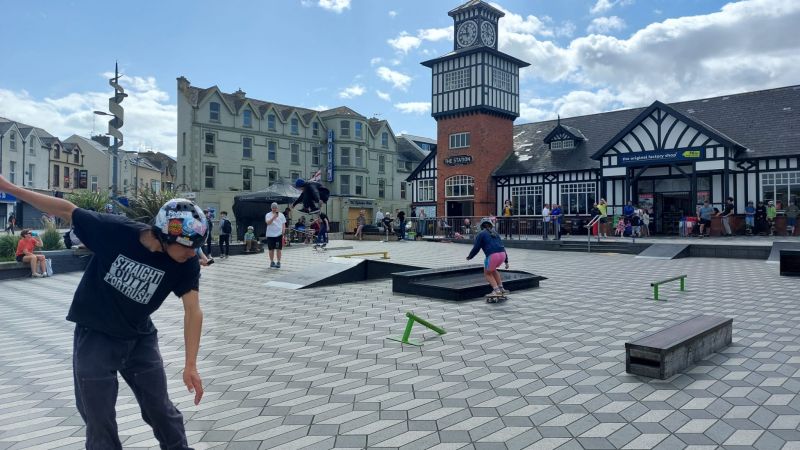Ulster University is playing a central role in driving cultural innovation and community cohesion through a UKRI-funded Creative Communities major research programme. The initiative, led by Northumbria University with support from the Arts and Humanities Research Council (AHRC), has awarded £290,000 to five Community Innovation Practitioners (CIPs) across the UK, including Ulster University's Dr. Jim Donaghey.
Dr. Donaghey, a Research Fellow at the School of Communication and Media at Ulster University Coleraine, leads a project that focuses on creative interventions in Portrush. His co-creative work involves collaborating with local skateboarding groups and an independent videographer to celebrate the cultural and social significance of skateboarding in the area. By championing skateboarders as legitimate users of public space, Dr. Donaghey aims to reignite civic pride and identity in the Portrush community, bolstering the long-running campaign to ‘Get Portrush a Skatepark!’
The CIP initiative is part of the larger £3.9 million AHRC Creative Communities programme, which explores how culture co-created with communities can drive regional development, reduce inequalities, and promote inclusive innovation. The CIPs have released podcasts, case studies, and policy papers that highlight the impact of cross-sector partnerships in enhancing community cohesion across the UK.
Dr Jim Donaghey’s collaborative research with the skateboard community in Portrush features in a new five-part podcast series published by the AHRC-funded Community Innovation Practitioner (CIP) programme and research insights developed through that work are now also available in a Case Study and Grassroots Policy Paper.
Jim has been part of the first Creative Communities CIP annual cohort, and reflecting on the past year as a Community Innovation Practitioner, Jim said:
“This funding has been a great opportunity to platform the Do-It-Yourself energy of the skaters in Portrush and to encourage them to take themselves seriously as legitimate users of public space. Through our collaboration, we’ve been able to transform people’s attitudes, including a better understanding of the gentrification that afflicts Portrush, and developing the self-respect of the community. I think the new podcast episode really captures that.”
The research also offers practical guidance for communities, academics, third and private sector organisations, and policymakers seeking to implement co-creation strategies to tackle challenges within their own communities and devolved contexts.
New Funding Award to Expand Cultural Innovation Efforts
The AHRC Creative Communities programme has been extended to 2027 with an additional £1.7 million funding award. This funding will double the number of opportunities for new Community Innovation Practitioners in 2025-2026, with a goal of supporting at least one project in each of the four nations of the UK.
To celebrate the achievements of the CIP research and the new funding extension, the AHRC Creative Communities team will host a virtual CIP Showcase on Wednesday, 23 October 2024, at 11 am. This event will be followed by an Expression of Interest webinar on Wednesday, 13 November 2024, for potential applicants to learn more about the expanded Community Innovation Practitioner awards. Full details and registration information are available on the AHRC Creative Communities website.
Executive Chair of AHRC Christopher Smith:
“AHRC Creative Communities seeks to bring rigorous research and a principle of co-creation to building stronger local partnerships. The Community Innovation Practitioner award brings research and practical understanding together to make us all partners in developing the potential we have, to be better, creative and more fulfilled citizens. This scheme exemplifies AHRC’s commitment within UKRI to evidence-driven citizen science, underpinned by our strategy to Transform Tomorrow Together.”
Arts Council England’s Director of Research and AHRC Creative Communities Advisory Board Member Andrew Mowlah:
“The Community Innovation Practitioners represent a groundbreaking step in making innovation truly inclusive by embedding creativity and community engagement at the heart of research and development. By fostering cross-sector partnerships and empowering local voices, this initiative aligns with our vision of supporting creative approaches that contribute to broader societal challenges. We are proud to support the Creative Communities programme and its commitment to shaping a future where innovation benefits everyone.”

